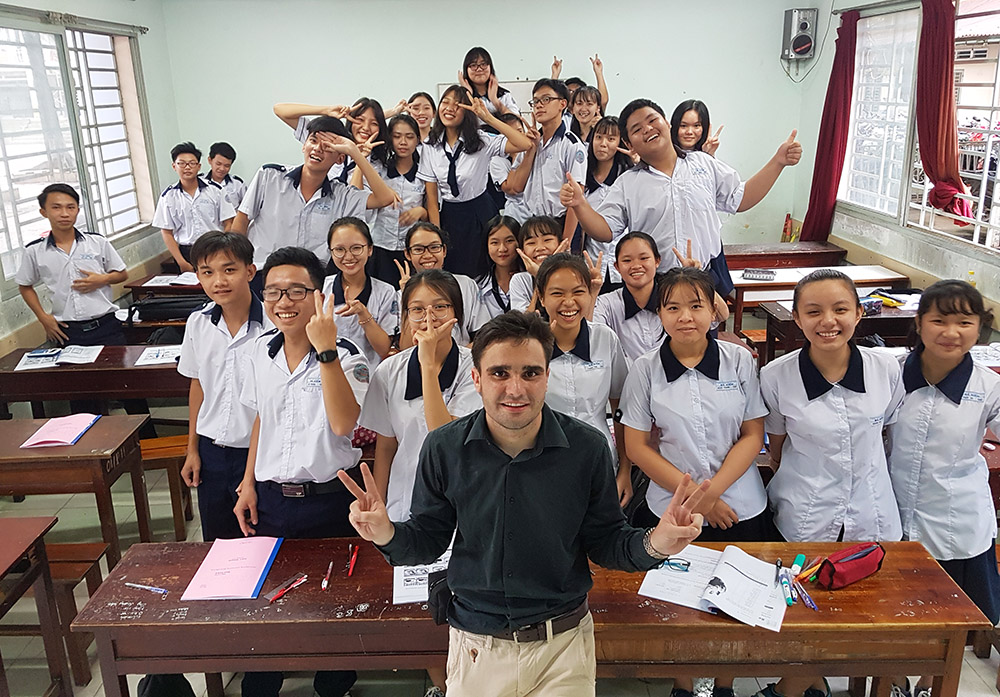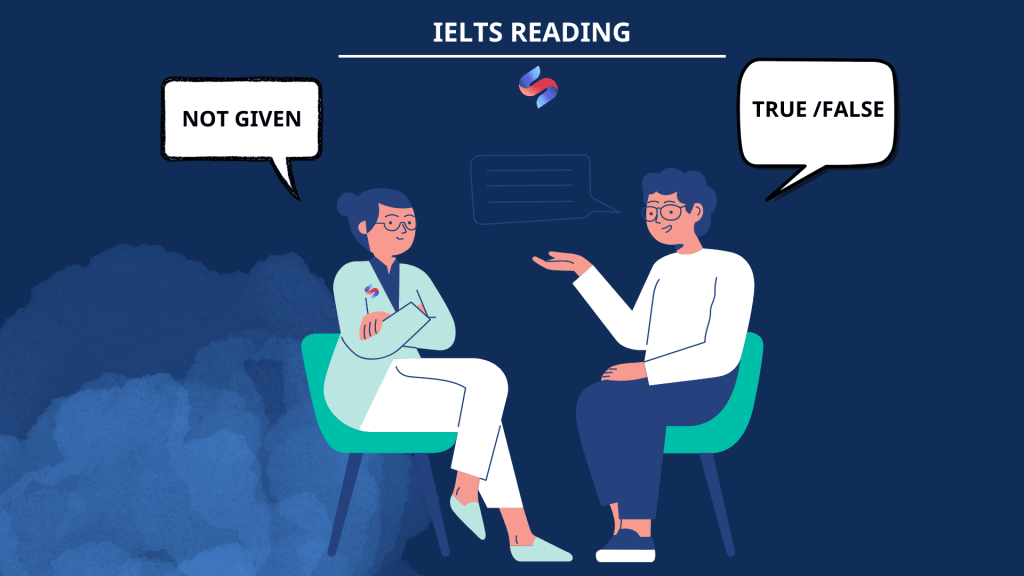THE LITTLE ICE AGE
A This book will provide a detailed examination of the Little Ice Age and other climatic shifts, but, before I embark on that, let me provide a historical context. We tend to think of climate – as opposed to weather – as something unchanging, yet humanity has been at the mercy of climate change for its entire existence, with at least eight glacial episodes in the past 730,000 years. Our ancestors adapted to the universal but irregular global warming since the end of the last great Ice Age, around 10,000 years ago, with dazzling opportunism. They developed strategies for surviving harsh drought cycles, decades of heavy rainfall or unaccustomed cold; adopted agriculture and stock-raising, which revolutionised human life; and founded the world’s first pre-industrial civilisations in Egypt, Mesopotamia and the Americas. But the price of sudden climate change, in famine, disease and suffering, was often high.
B The Little Ice Age lasted from roughly 1300 until the middle of the nineteenth century. Only two centuries ago, Europe experienced a cycle of bitterly cold winters; mountain glaciers in the Swiss Alps were the lowest in recorded memory, and pack ice surrounded Iceland for much of the year. The climatic events of the Little Ice Age did more than help shape the modern world. They are the deeply important context for the current unprecedented global warming. The Little Ice Age was far from a deep freeze, however; rather an irregular seesaw of rapid climatic shifts, few lasting more than a quarter-century, driven by complex and still little understood interactions between the atmosphere and the ocean. The seesaw brought cycles of intensely cold winters and easterly winds, then switched abruptly to.years of heavy spring and early summer rains, mild winters, and frequent Atlantic storms, or to periods of droughts, light northeasterly winds, and summer heat waves.
C Reconstructing the climate changes of the past is extremely difficult, because systematic weather observations began only a few centuries ago, in Europe and North America. Records from India and tropical Africa are even more recent. For the time before records began, we have only ‘proxy records’ reconstructed largely from tree rings and ice cores, supplemented by a few incomplete written accounts. We now have hundreds of tree-ring records from throughout the northern hemisphere, and many from south of the equator, too, amplified with a growing body of temperature data from ice cores drilled in Antarctica, Greenland, the Peruvian Andes, and other locations. We are close to a knowledge of annual summer and winter temperature variations over much of the northern hemisphere going back 600 years.
D This book is a narrative history of climatic shifts during the past ten centuries, and some of the ways in which people in Europe adapted to them. Part One describes the Medieval Warm Period, roughly 900 to 1200. During these three centuries, Norse voyagers from Northern Europe explored northern seas, settled Greenland, and visited North America. It was not a time of uniform warmth, for then, as always since the Great Ice Age, there were constant shifts in rainfall and temperature.
Mean European temperatures were about the same as today, perhaps slightly cooler.
E It is known that the Little Ice Age cooling began in Greenland and the Arctic in about 1200. As the Arctic ice pack spread southward, Norse voyages to the west were rerouted into the open Atlantic, then ended altogether. Storminess increased in the North Atlantic and North Sea. Colder, much wetter weather descended on Europe between 1315 and 1319, when thousands perished in a continent-wide famine. By 1400, the weather had become decidedly more unpredictable and stormier, with sudden shifts and lower temperatures that culminated in the cold decades of the late sixteenth century. Fish were a vital commodity in growing towns and cities, where food supplies were a constant concern. Dried cod and herring were already the staples of the European fish trade, but changes in water temperatures forced fishing fleets to work further offshore. The Basques, Dutch, and English developed the first offshore fishing boats adapted to a colder and stormier Atlantic. A gradual agricultural revolution in northern Europe stemmed from concerns over food supplies at a time of rising populations. The revolution involved intensive commercial farming and the growing of animal fodder on land not previously used for crops. The increased productivity from farmland made some countries self-sufficient in grain and livestock and offered effective protection against famine.
F Global temperatures began to rise slowly after 1850, with the beginning of the Modern Warm Period. There was a vast migration from Europe by land-hungry farmers and others, to which the famine caused by the Irish potato blight contributed, to North America, Australia, New Zealand, and southern Africa.
Millions of hectares of forest and woodland fell before the newcomers’ axes between 1850 and 1890, as intensive European farming methods expanded across the world. The unprecedented land clearance released vast quantities of carbon dioxide into the atmosphere, triggering for the first time humanly caused global warming. Temperatures climbed more rapidly in the twentieth century as the use of fossil fuels proliferated and greenhouse gas levels continued to soar. The rise has been even steeper since the early 1980s. The Little Ice Age has given way to a new climatic regime, marked by prolonged and steady warming. At the same time, extreme weather events like Category 5 hurricanes are becoming more frequent.
- Giải thích từ vựng
- Relevance (n) /ˈrel.ə.vəns/ sự thích đáng, sự thích hợp; sự xác đáng
Eg: What relevance does that point have to the discussion?
I understand what you are saying but i don’t understand the relevance to this discussion.
This issue has no relevance to the matter in hand.
Từ trái nghĩa: irrelevance
Collocation
- Relevance to sth
- At last (adv) sau cùng
Eg: I’ve finished my essay at last!
- Embark on (phrasal verb) bắt đầu (một dự án hoặc cuộc kinh doanh)
Eg: We’re embarking on a new project later this year.
She is about to embark on a diplomatic career.
- As opposed to (idom) trái với, thay vì (=rather than)
Eg: I’d prefer to go in may, as opposed to september.
The box is made of plastic, as opposed to wood.
This exercise develops suppleness as opposed to strength.
- At the mercy of sb/sth: ở dưới quyền của…/ chịu sự điều khiển của (ở thế phụ thuộc, phó mặc cho)
Eg: Poor people are increasingly at the mercy of money-lenders.
Fishermen are always at the mercy of the forces of nature .
- Glacial (a) /ˈɡleɪ.si.əl/ băng giá, lạnh buốt
Eg: There are 1 million acres of uninterrupted forest, the result of glacial and climatic activity.
Glacier (n)
- Shift (n) /ʃɪft/ sự thay đổi
Eg: The shift in the balance of power in the region has had far-reaching consequences.
There has been a dramatic shift in public opinion towards peaceful negotiations.
- Adapt (v) /əˈdæpt/ thích nghi (với…)
Eg: Many software companies have adapted popular programs to the new operating system.
It took me a while to adapt to the new job.
- Opportunism (n) /ˌɒp.əˈtʃuː.nɪ.zəm/ chủ nghĩa cơ hội
Eg: He accused his opponent of political opportunism.
- Harsh (a) /hɑːʃ/ khắc nghiệt
Eg: The harsh light revealed every crevice and wrinkle in his face.
In a harsh economic climate, raises for teachers have become a lightning rod for criticism.
- Unaccustomed (a) /ˌʌn.əˈkʌs.təmd/ không thường xảy ra, bất thường, ít có
Eg: The weather presented a particular challenge, especially for soldiers unaccustomed to subarctic conditions.
- Unprecedented (a) /ʌnˈpres.ɪ.den.tɪd/ không hề có; chưa hề thấy, chưa từng nghe thấy
Eg: This century has witnessed environmental destruction on an unprecedented scale.
Unemployment has reached an unprecedented level.
- Far from (idiom) không chút nào
Eg: We were far from disappointed when they told us they couldn’t come to visit.
The situation is far from clear.
- Rapid (a) /ˈræp.ɪd/ nhanh chóng
Eg: The 1990s were a period of rapid change.
- Interaction (n) /ˌɪn.təˈræk.ʃən/ sự ảnh hưởng lẫn nhau, sự tác động qua lại
Eg: There’s not enough interaction between the management and the workers.
Collocation
- Interaction between sb and sb there’s not enough interaction between the management and the workers.
- Interaction of sth and sth a great advertising campaign comes from the successful interaction of strategic planning and creative skills.
- Interaction with sb we select employees who will be good at face-to-face interaction with customers.
- Interaction among sth the engineering conference encourages interactions among experts in different fields.
- Abruptly (a) /əˈbrʌpt.li/ bất ngờ, đột ngột
Eg: He stood up abruptly and went outside.
The talks ended abruptly when one of the delegations walked out in protest.
- Mild (a) /maɪld/ nhẹ, êm dịu/ (thời tiết) không quá lạnh
Eg: She can’t accept even mild criticism of her work.
- Supplement (v) /ˈsʌp.lɪ.mənt/ bổ sung, phụ thêm vào
Eg: He supplements his income by working in a bar at night.
Some vegetarians like to supplement their diets with iron.
- Hemisphere (n) /ˈhem.ɪ.sfɪər/ bán cầu
Eg: The equator divides the earth into the northern and southern hemispheres.
- Amplify (v) /ˈæm.plɪ.faɪ/ mở rộng, phóng đại, thổi phồng
Eg: A funeral can amplify the feelings of regret and loss for the relatives.
She refused to amplify further.
Amplification (n)
- Annual (a) /ˈæn.ju.əl/ thường niên, hằng năm
Eg: They spent their annual holiday on a yacht in the caribbean.
The average annual rainfall in this region is 750 mm.
- Constant (a) /ˈkɒn.stənt/ không ngớt, không dứt, liên miên, liên tiếp
Eg: I can’t concentrate with ann’s constant chatter.
I have to combat this constant desire to eat chocolate.
- Perish (v) /ˈper.ɪʃ/ diệt vong; chết; bỏ mạng
Eg: Three hundred people perished in the earthquake.
- Culminate (v) /ˈkʌl.mɪ.neɪt/ lên đến cực điểm, lên đến tột độ, lên đến tột bậc
Eg: My arguments with the boss got worse and worse, and finally culminated in my resignation.
Their many years of research have finally culminated in a cure for the disease.
Collocation
- Culminate in/with sth
- Commodity (n) /kəˈmɒd.ə.ti/ hàng hoá; loại hàng, mặt hàng
Eg: One big commodity that canada exports is oil.
Một số từ đồng nghĩa:
- Purchase i’m not in a position to make a major purchase like a car.
- Goods there’s a sale on home goods this week.
- Shopping can you bring the shopping in for me?
- Groceries thank you for bagging my groceries for me.
- Acquisition that rare book is his latest acquisition.
- Merchandise the shop’s merchandise was heavily discounted.
- Gradual (a) /ˈɡrædʒ.u.əl/ dần dần, từ từ, từng bước một
Eg: There has been a gradual improvement in our sales figures over the last two years.
He suffered a gradual loss of memory.
- Productivity (n) /ˌprɒd.ʌkˈtɪv.ə.ti/ sức sản xuất; năng suất, hiệu suất
Eg: Studies show that if a working environment is pleasant, productivity increases.
The productivity figures are down/up on last week’s.
It’s a question of striking the right balance between quality and productivity.
Collocation
-
- Productivity increases/improves/goes up studies show that if a working environment is pleasant, productivity increases.
- Increase/improve/boost productivity
- An increase/decrease/fall in productivity
- Productivity gains/growth/improvement many economists doubt that productivity growth can be credited to information technology.
- Famine (n) /ˈfæm.ɪn/ nạn đói kém/ sự khan hiếm
Eg: Another crop failure could result in widespread famine.
- Trigger (v) /ˈtrɪɡ.ər/khởi động/ kích hoạt
Eg: Some people find that certain foods trigger their headaches.
Một số từ đồng nghĩa:
- Cause firefighters determined that a campfire spark caused the wildfire.
- Bring about many illnesses are brought about by poor diet and lack of exercise.
- Result in the fire resulted in damage to their house.
- Lead to reducing speed limits has led to fewer deaths on the motorways.
- Make the heat is making me tired.
- Arouse it’s a subject that has aroused a lot of interest.
- Proliferate (v) /prəˈlɪf.ər.eɪt/ tăng nhanh, đột ngột
Eg: Small businesses have proliferated in the last ten years.
Time passed and animal life proliferated.
- Steep (a) /stiːp/ (tăng, giảm) nhanh, gấp
Eg: There has been a steep increase/rise in prices.
- Regime (n) /reɪˈʒiːm/ chế độ, chính thể
Eg: The regime tried to silence dissent with a programme of mass murder.
He urged governments worldwide to break diplomatic ties with the new regime.
- Prolong (v) /prəˈlɒŋ/ kéo dài; nối dài; gia hạn
Eg: We were having such a good time that we decided to prolong our stay by another week.
Prolonged (a)
- Deduce (v) /dɪˈdʒuːs/ suy ra, luận ra, suy luận, suy diễn
Eg: We cannot deduce very much from these figures.
- Luyện tập
Bài 1: Chọn từ trong khung để hoàn thành các câu bên dưới
| regime | mercy | culminated | triggered | constant |
| mild | embarked on | opposed | far from | deduced |
- She graduated in 1962 and ………………………………….. a career as a teacher.
- As …………………………… to sitting around watching TV, you could be working on your paper.
- I’m not going to put myself at the …………………………………… of the bank.
- It is …………………………… clear what he intends to do.
- The police have ………………………………. that he must have left his apartment yesterday evening.
- The government was accused of covert military operations against the …………………………………..
- The racial killings at the weekend have …………………………….. off a wave of protests.
- Months of hard work ………………………………………. in success.
- The journalists were frustrated by her ……………………………. deflection of their questions.
- He has suffered a …………………………… heart attack – nothing too serious.
Bài 2: Chọn đáp án đúng để điền vào chỗ trống
- Such an event was ………………………….. in the 20th century. A. unprecedented B. unaccustomed
- Language games are usually intended to encourage student ……………………… A. opportunism B. interaction
- The ………………………. of this novel to the current situation is striking. A. relevance B. shift
- …………………………. his prayers had been answered. A. at last B. routinely
- Most of what you see below you is ……………………… debris. A. harsh B. glacial
- The last few years have seen a …………………………….. in opinion on the issue. A. shift B. opportunism
- The good thing about children is that they …………………………….. very easily to new environments. A. culminate B. adapt
- The book confronts the ……………………………. social and political realities of the world today. A. constant B. harsh
- The Olympic and world champion finished in the …………………………….. position of fourth. A.unaccustomed B. unprecedented
- I was startled by a …………………………….. movement to my left. A. abrupted B. rapid
- Power does not necessarily move with responsibility, but rather with …………………………………… and favouritism. A. opportunism B. relevance
- She came back five minutes late from lunch and was …………………………… dismissed. A. relevantly B. abruptly
- During especially busy periods, around 175 temporary workers …………………………. a production workforce of 3,500. A. amplify B. supplement
- The equator of the ……………………………… is eye level for the animal. A. hemispheres B. commodities
- As you go further south, you will notice a …………………………. change of climate. A. steep B. gradual
- Books and articles on the subject have …………………………. over the last year. A. triggered B. proliferated
- Electric guitars are ……………………………….. through loudspeakers. A. amplified B. adapted
- The government have just launched their ……………………… Christmas campaign to stop drunken driving. A. constant B. annual
- He believes that Europe must create closer ties or it will ……………………………. A. culminate B. perish
- The country’s most valuable ……………………………. include tin and diamonds. A. commodities B. famines
- The introduction of new working practices has dramatically improved ………………………………. A. hemisphere B. productivity
- Thousands of people emigrated during the Irish potato …………………………… of 1845–1846. A. opportunism B. famine
- House prices now seem to be levelling off after the …………………………… rises of the last few years. A. steep B. constant
- They’re trying to …………………………………… their lives. A. prolong B. deduce
Bài 1:
1.embarked on 2. As opposed to 3. at the mercy of 4. far from 5. deduced
- regime 7. triggered 8. culminated 9. constant 10. mild
Bài 2:
1.A 2. B 3. A 4. A 5. B
- A 7. B 8. B 9. A 10. B
- A 12. B 13. B 14. A 15.B
- B 17. A 18. B 19. B 20. A
- B 22. B 23. A 24. A
ZORBA – Luyện thi IELTS cùng chuyên gia.
??̣? ???̛̉ ???̂̃? ???́ ? ???̂̀?
Đ?̆?? ??́ ???? ??̣? ZORBA IELTS
————————–
☎: 0963.804.870
? info@zorba.edu.vn
? zorba.edu.vn
? CS1: Tầng 16. 101 Láng Hạ. Đống Đa. Hà Nội.
? CS2: 134 Đốc Đen, Trần Lãm. Tp Thái Bình














